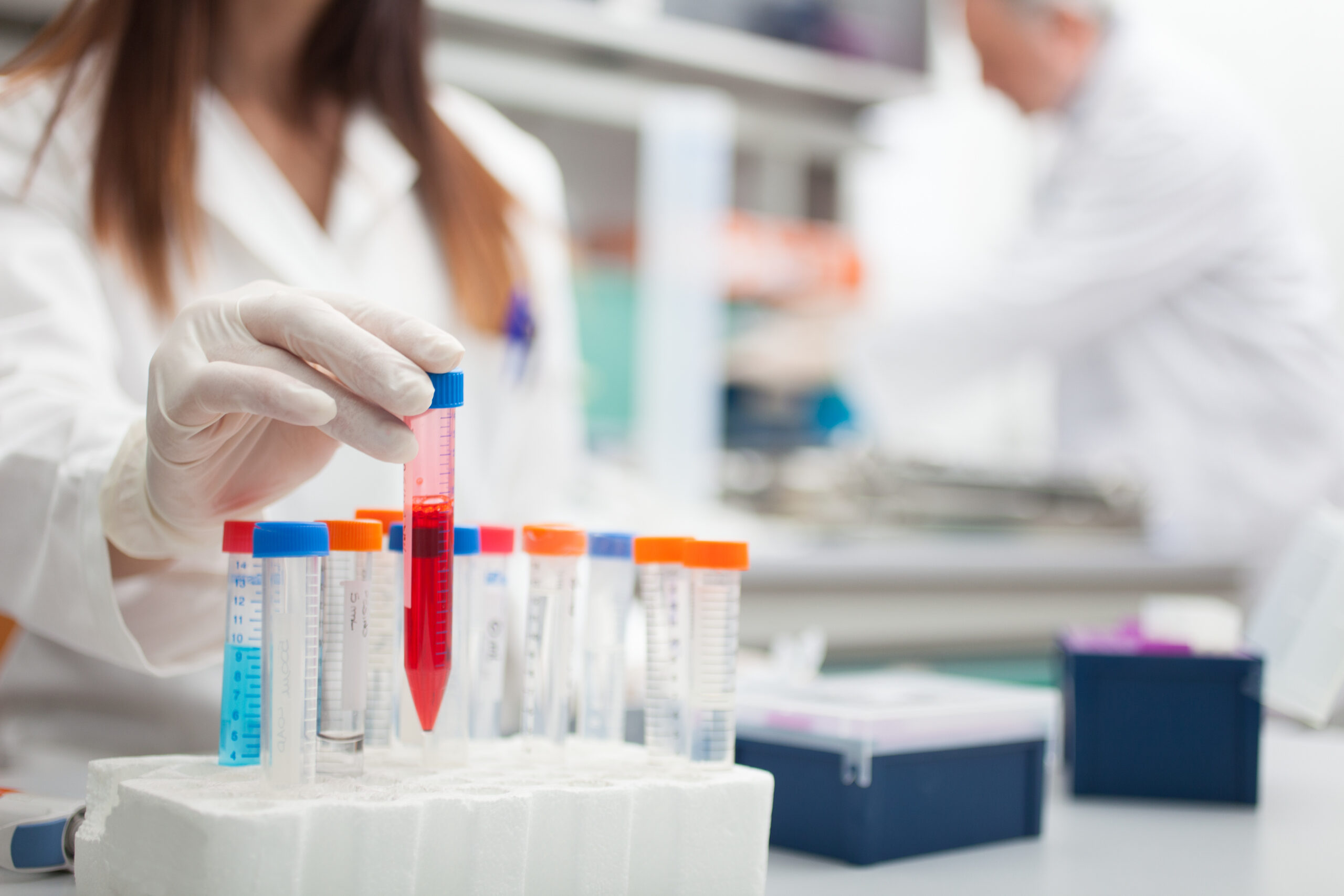Ovarian Rejuvenation Clinical Trial
Ovarian rejuvenation clinical trial at a glance
- This trial is still active, extended due to COVID-19 disruptions in recruitment; it will continue until the maximum number of studies have been confirmed.
- TRM is seeking participants for a clinical trial we are conducting that is studying if injecting the ovaries with plasma proteins improves hormone function, which could improve the chances of pregnancy for women with diminished ovarian reserve or who are premenopausal or menopausal.
- This is a national study conducted on behalf of EnooBio laboratory, with four regional clinics involved, and TRM is the only clinic in the Southeast region involved. This study is an IRB approved trial that is annually reviewed by an oversight committee for ongoing protection of subjects and data collection.
- The clinical study uses the Enriched Platelet Factors procedure, which concentrates the blood’s own naturally occurring properties and places them in the ovaries to improve ovarian function. This is still considered an experimental treatment.
- There is a two-month time commitment for women participating in the clinical trial.
- There is a cost to participate in the study based on the study design by EnooBio laboratory; trial participants will pay a $3,500 nonrefundable fee to participate.
- There are minimal risks with the procedure, primarily related to the injection of the plasma concentrate into the ovary. This procedure is very similar to the commonly performed procedure of egg retrieval done in the setting of in vitro fertilization (IVF). The trial consent papers will fully explain all known possible risks. As with any trial, there is a remote possibility of unknown risks that could occur.
- The clinical trial could improve the chances of pregnancy for participating women who would then most likely still need to undergo IVF. It is possible that the procedure does not affect hormone production in patients and may have no effect on the chances of pregnancy.
Expert Treatment. Total Commitment. TRM.

At Tennessee Reproductive Medicine, you’ll find a team of professionals dedicated to delivering the highest quality of compassionate fertility care.
What is the study?
Tennessee Reproductive Medicine is taking part in a clinical study that could improve the chances of pregnancy for participating women. This study is an option to pursue ovarian rejuvenation that could improve egg quality and quantity for women with diminished ovarian reserve and for those who are premenopausal, perimenopausal or menopausal. It could give women more options if previous treatment has failed and may be appropriate before a woman chooses to move on to third-party reproduction options such as using egg donation or embryo donation.
The clinical trial titled “Safety of Autologous Blood-derived Growth Factors Ovarian Infusion on Outcome of Assisted Reproductive Procedures and Mitigation of Aging Effects in Endocrine System” is sponsored by EnooBio. Dr. Jessica Scotchie is one of four investigating physicians. This study is being conducted at clinics in California, New York, Illinois and Tennessee. TRM is the only clinic in the Southeast region to take part in this study, which is an IRB approved trial that is annually reviewed by an oversight committee for ongoing protection of subjects and data collection.
This is still considered an experimental treatment and we have insufficient evidence to be able to give meaningful estimates on how likely hormones would rise and if any rise would correspond to participants having a higher chance of having normal menstrual cycles or increased chance of natural or treatment related pregnancy. Collecting more information is one of the goals of the trial. Currently there are case reports of livebirths published in the literature in patient with POI who had PRP treatment, but the data is very small in terms of patient numbers and there is insufficient data to make any broad conclusions about the effectiveness of the treatment.
Related Reading: Diminished Ovarian Reserve
How does the procedure work?
This clinical study uses the Enriched Platelet Factors (EnPLAF) procedure. This procedure uses the body’s own platelets and their properties to enhance regenerative and anti-aging capacities.
The EnPLAF process includes:
- The participant’s blood is drawn.
- The blood is centrifuged to concentrate the platelets.
- The platelets are activated to release their biological factors.
- This is then concentrated, and the woman’s platelets are then injected back into her ovaries.
The EnPLAF procedure concentrates the blood’s own naturally occurring properties. The theory is that EnPLAF promotes tissue rejuvenation and will improve ovarian function. The possible improvement includes increased ovarian hormone production, resumption of menses and hormone stabilization, which may increase the chance of successful pregnancy through IVF. The goal of this clinical study is to gather data on the effectiveness of the EnPLAF procedure.
After this procedure, participants will likely still undergo IVF in order to get pregnant. The EnPLAF procedure is meant to improve the chances of pregnancy, not replace assisted reproductive methods.
This is the second phase of this study. The first took place across the United States and was successful enough to warrant further investigation.
What are the risks and benefits of participating in this clinical trial?
Risks
- There are no known risks with the EnPLAF procedure other than those associated with ovarian injection, which would be the same as the risks with egg retrieval in IVF. The risks associated with egg retrieval could include abdominal or pelvic infection and injury to surrounding organs including blood vessels, the bowel and bladder. While uncommon, if those complications occurred it could require the need for antibiotic therapy and/or surgical treatment to repair an injured organ. The procedure utilizes the participant’s own blood, which means there is a minimal risk of an allergic reaction. As with any needle injection, there may be slight bruising or discomfort associated with the shot.
- While there are no known risks specific to the EnPLAF procedure beyond those associated with ovarian injection as outlined above, the EnPLAF procedure is considered experimental and as such could carry unknown or unreported risks. It is recommended that those interested in taking part in the clinical study thoroughly read and understand all aspects of the study before signing up. The physician will also go through the study details with the participants.
Benefits
- The hope is that those participating in the clinical study benefit from the procedure.
- Additionally, participation in this study could help others in the future, as well as expand the scope of medical knowledge about ovarian aging and rejuvenation.
What are the requirements?
This clinical study is focused on women who are 30-55 years old with low ovarian reserve and no history of ovarian or uterine cancer. These women should also be in general good health with an acceptable body mass index (BMI).
Women with blood disorders are not eligible for this clinical trial. Exclusions may also occur for women with certain factors such as cancer, heart disease, genetic disease, severe pelvic adhesions and blood coagulation issues.
Participants do not have to be past, current or future TRM patients.
The clinical study duration is two months of monitoring, but the EnPLAF procedure takes approximately two hours. After the EnPLAF procedure is performed, we will conduct FSH (follicle-stimulating hormone), LH (luteinizing hormone), E2 (estradiol) and AMH (anti müllerian hormone) evaluations, plus additional blood tests. This monitoring will occur at the 2- and 6-week marks. Additional testing may occur at week 8 if necessary.
Cost
Participants will pay a $3,500 fee for the complete procedure. This payment covers all costs related to the study and is nonrefundable should a participant choose to leave the study. This fee is to be paid in one installment before beginning the study. The EnPLAF procedure and the related study are not covered by insurance companies. This cost does not cover IVF after the EnPLAF procedure.
On the morning of the procedure, an ultrasound is performed to confirm we can visualize and safely reach the ovaries. If the ovaries are visible and can be safely reached, we move forward with the procedure, if we cannot, the procedure must be canceled. If your procedure is canceled, your payment would be refunded.
Considerations for participants
Being in this study does not replace regular medical care. It is important that participants understand the difference between the regular care from a physician and the research study.
We encourage all those interested in participating to research and understand why the clinical study is being done and all it involves. Participation is entirely voluntary and may be stopped by the participant at any time, with no penalty or impact on medical care or benefits.
Participation in the study does not mean that the patient will be deemed a safe IVF candidate. We recommend any patient interested in IVF to consult with the clinic they choose for IVF care to assess the safety and suitability of undergoing the procedure. Participation requires travel to Chattanooga and is usually done under anesthesia. If a patient has anesthesia, they must have an adult at the clinic with them on the day of their procedure to drive them home.
For patients that are wanting to pursue the treatment that is most likely to result in a live birth and the main culprit of the fertility problem is advanced reproductive age, we generally advise that it would be best to pursue egg or embryo donation. If patients would potentially pursue that treatment route in the future and want to see if an experimental treatment affects ovarian function positively, then this trial procedure may be something to consider.
For those who would like to participate in this clinical study, please fill out the form below.
To learn more about the study and to begin the application process, please complete the form below. A TRM staff member will send a copy of the IRB consent discussing the trial and health history forms that will used to determine if interested individuals are candidates for the procedure.


